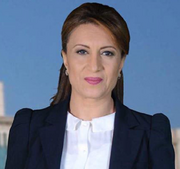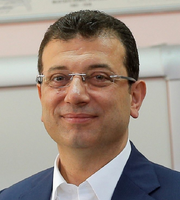|
| ||||||||||||||||||||||||||||||||||||||||||||||||||||||||||||||||||||||||||||||||||
| ||||||||||||||||||||||||||||||||||||||||||||||||||||||||||||||||||||||||||||||||||
All 475 seats in the Assembly 238 seats needed for a majority | ||||||||||||||||||||||||||||||||||||||||||||||||||||||||||||||||||||||||||||||||||
|---|---|---|---|---|---|---|---|---|---|---|---|---|---|---|---|---|---|---|---|---|---|---|---|---|---|---|---|---|---|---|---|---|---|---|---|---|---|---|---|---|---|---|---|---|---|---|---|---|---|---|---|---|---|---|---|---|---|---|---|---|---|---|---|---|---|---|---|---|---|---|---|---|---|---|---|---|---|---|---|---|---|---|
| Turnout | 73.6% | |||||||||||||||||||||||||||||||||||||||||||||||||||||||||||||||||||||||||||||||||
|
| ||||||||||||||||||||||||||||||||||||||||||||||||||||||||||||||||||||||||||||||||||
The 4742 Jakanian general election consisted of elections for the Jakanian presidency, the Assembly, three gubernatorial elections and many local elections across the country. Ayleen Basri of Birlik was victorious in the presidential election, beating Umut nominee Teniz Topal in the second round.
The legislative elections saw the Democratic Alliance lose nearly four-hundred seats despite receiving a higher popular vote tally as a result of the emergence of three new major opposition parties during the previous term. Until 4751, this was the last regularly scheduled election to be held in the country.
Umut emerged as the largest party but Basri's opposition to their political programme meant they were not invited to form a government. After an extended period of negotiation, Basri invited Birlik Assembly leader Baran Batuk to lead a coalition government that would also include the Alliance and Niyaz.
Background[]
In the previous Jakanian general election, the Democratic Alliance were the only major political movement to stand candidates. The elections were held following a period of political and economic instability and the elections were thought to be an inevitable victory for the Alliance, leading to an incredibly low turnout among the population.
During their term in office however, the Alliance made substantial reforms to the country's economic and political standing so that by the time the 4742 elections were held, a diverse selection of political parties and candidates stood for office in both the Assembly and the Presidential election.

Ayleen Basri, Birlik leader and Presidential candidate
The first notable development in terms of the 4742 election was the creation of Birlik in March 4738 and the election of Ayleen Basri as its inaugural leader within a year. Basri was a well-known figure in local politics, having garnered the nickname the "Bulldog of Bahçeleri" during her time as mayor of the city. The new political party drew its support primarily from Ahmadis as well as economic moderates.
In the same month as Basri was elected leader, three Alliance Deputies led by Baran Batuk defected to the new party. Around the same time, two other political parties were formed, Umut and Niyaz. The former presented themselves as a challenge to the Alliance from the secular left while the latter was formed by Ahmadis disappointed by the right-wing economics of Birlik. Neither party was able to achieve significant pre-election success compared to Birlik but both were able to win some local offices.
Campaign[]
Legislative campaign[]
Unusually in recent Jakanian history, three of the four major party leaders stood in the Presidential elections with incumbent Premier Yilma Bal being the sole exception. For this reason, elections to the Assembly attracted significantly less attention than in other campaigns. The focus of much media attention was on the race for the Presidency, especially given that a coalition government was expected and thus the President would play an important role in government formation.
Presidential campaign[]

Incumbent President Nuray Cevahir failed to reach the second ballot
Prior to the start of the campaign, incumbent President Nuray Cevahir sought the endorsement of both Birlik and Niyaz for re-election on the basis of what he referred to as "shared Jakanian values". The move was primarily an attempt to provide a united anti-secular opposition to the Umut leader Teniz Topal, who was polling higher than the President according to some outlets. Both parties declined to endorse him, however, and the move was received badly by many voters who suggested it was a move of desperation.
Throughout the campaign, Cevahir sought to emphasis the economic growth and political stability that the Alliance had brought to the country over the course of the previous five years. Basri and Topal, on the other hand, were vocally critical of the Bal government on various issues.
